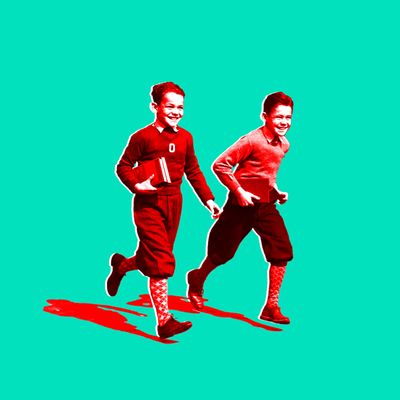
For lots of different reasons — like that you sit at your desk all day or that the psychological discourse has a sneakily pervasive insistence that the mind is a computer — it’s easy to forget that your brain is part of your body. Not just in the sense of your mind controlling your limbs, but in that your body informs your thinking. Consider the way running clears your mind, for example, or a recent study suggesting that overweight people see objects as farther away than they actually are.
Now a new study in Current Biology by Guillen Fernandez, a cognitive neuroscientist at Radboud University in the Netherlands, further shows how your physical body affects your mental life. Using a visual-recall exercise and brain imaging, Fernandez and his colleagues found that working out four hours after studying 90 test images increases the accuracy of recalling those images — while exercising immediately after study provided no boost at all, the same as a control group. The workout was a 35-minute interval training on an ergometer, where participants were brought up to 80 percent of maximum heart rate (which Runner’s World calls a “comfortably hard” amount of effort). The immediate group went into the workout right after taking the image test, while the delayed group watched three hours of nature documentaries (including BBC’s Planet Earth, the greatest documentary of all) before exercising. The control group didn’t work out at all, and then each group did a recall version of the visual test 48 hours later while in an fMRI machine.
The authors say that the delayed exercise “most likely” gave a boost to memory retention because it affected “memory consolidation,” the part of the memory formation process where, according to the working theory, a “memory trace” gets stored away for later retrieval. The authors speculate that it probably has something to do with the cocktail of neurotransmitters released by exercise, like dopamine or brain-derived neurotrophic factor, the protein that Harvard psychiatrist John Ratey calls “Miracle-Gro for the brain” in Spark: The Revolutionary New Science of Exercise and the Brain.
Fernandez tells Science of Us that the study sprang from his lab’s interest in the processes happening after initial learning that contribute to the stabilizing of memory traces, those strands of memory that could be consolidated or lost. Physical exercise is particularly suited to the task because of all the helpful neurotransmitters that are released by working out, potentially aiding the memory-formation process.
Fernandez warns that these are the “early days of empirical evidence” for how exercise boosts memory. The optimal delay activity, length of delay, and type and intensity of exercise are not yet found. Still, he says, you can assume that moderate or intensive exercise a couple hours after learning is “helpful” for making those traces of memory stick around a longer if the memories weren’t strong immediately after you first learned them. So if you’re getting ready for an exam, a cycle of studying, resting, and working out could be a good way to cooperate with your biology.




